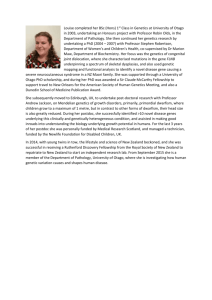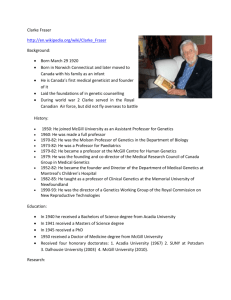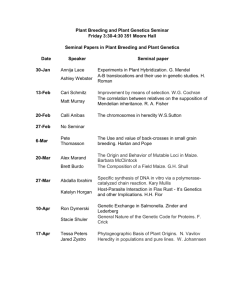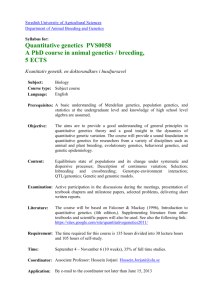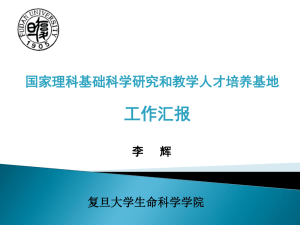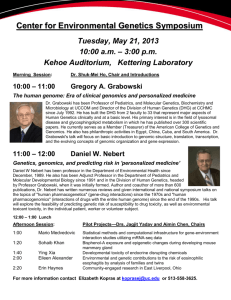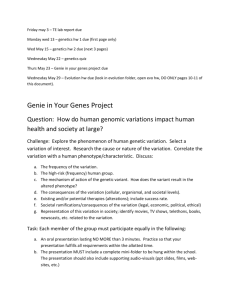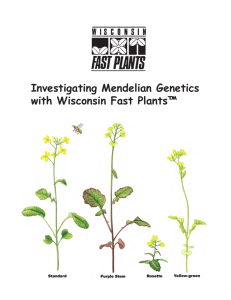here - Genetics In Wisconsin
advertisement
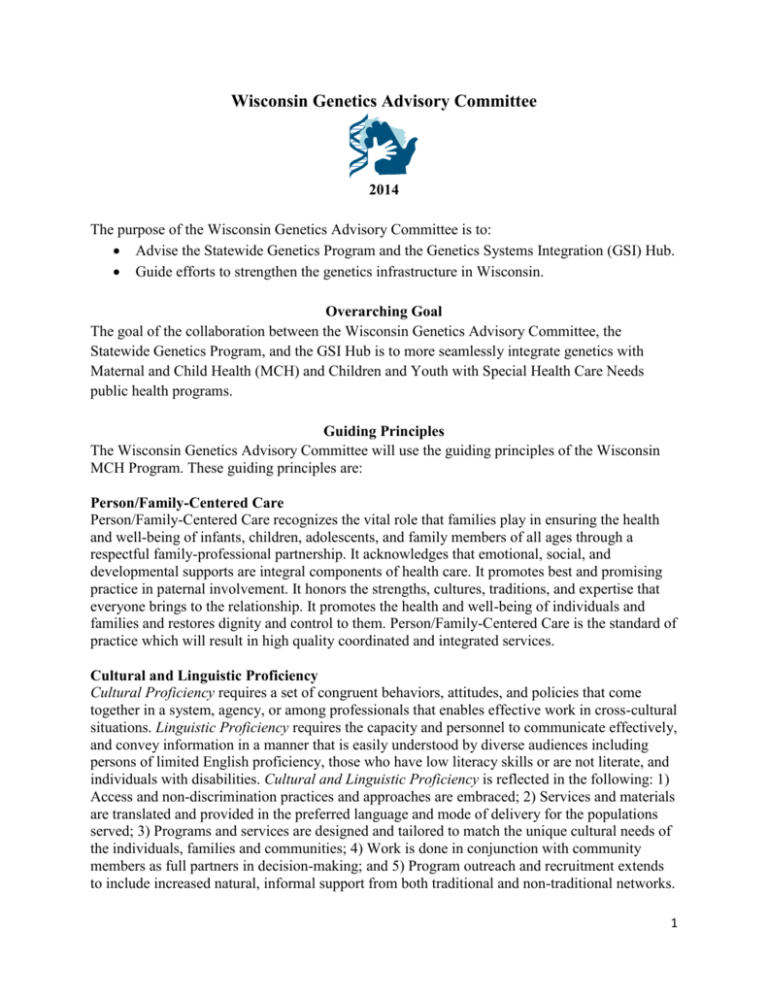
Wisconsin Genetics Advisory Committee 2014 The purpose of the Wisconsin Genetics Advisory Committee is to: Advise the Statewide Genetics Program and the Genetics Systems Integration (GSI) Hub. Guide efforts to strengthen the genetics infrastructure in Wisconsin. Overarching Goal The goal of the collaboration between the Wisconsin Genetics Advisory Committee, the Statewide Genetics Program, and the GSI Hub is to more seamlessly integrate genetics with Maternal and Child Health (MCH) and Children and Youth with Special Health Care Needs public health programs. Guiding Principles The Wisconsin Genetics Advisory Committee will use the guiding principles of the Wisconsin MCH Program. These guiding principles are: Person/Family-Centered Care Person/Family-Centered Care recognizes the vital role that families play in ensuring the health and well-being of infants, children, adolescents, and family members of all ages through a respectful family-professional partnership. It acknowledges that emotional, social, and developmental supports are integral components of health care. It promotes best and promising practice in paternal involvement. It honors the strengths, cultures, traditions, and expertise that everyone brings to the relationship. It promotes the health and well-being of individuals and families and restores dignity and control to them. Person/Family-Centered Care is the standard of practice which will result in high quality coordinated and integrated services. Cultural and Linguistic Proficiency Cultural Proficiency requires a set of congruent behaviors, attitudes, and policies that come together in a system, agency, or among professionals that enables effective work in cross-cultural situations. Linguistic Proficiency requires the capacity and personnel to communicate effectively, and convey information in a manner that is easily understood by diverse audiences including persons of limited English proficiency, those who have low literacy skills or are not literate, and individuals with disabilities. Cultural and Linguistic Proficiency is reflected in the following: 1) Access and non-discrimination practices and approaches are embraced; 2) Services and materials are translated and provided in the preferred language and mode of delivery for the populations served; 3) Programs and services are designed and tailored to match the unique cultural needs of the individuals, families and communities; 4) Work is done in conjunction with community members as full partners in decision-making; and 5) Program outreach and recruitment extends to include increased natural, informal support from both traditional and non-traditional networks. 1 Community-Wide Leadership Community-Wide Leadership involves a commitment of time, energy, and resources; bringing people together from many sectors of a community, and recognizing the value of all voices in the systems that affect peoples’ lives. Health Promotion, Prevention, and Resiliency Health Promotion, Prevention, and Resiliency refers to the capacity of infants, children, families, neighborhoods, and communities to thrive in spite of stressful circumstances by building on the strengths within the individual, family, community, and society. This approach fosters patterns of behavior that enhance the quality of life in areas such as communication skills, positive decision making, and self-esteem. Outreach Outreach refers to working through partners and stakeholders to communicate with families and assisting those families to navigate systems of care, access services, and have their needs met. 2


